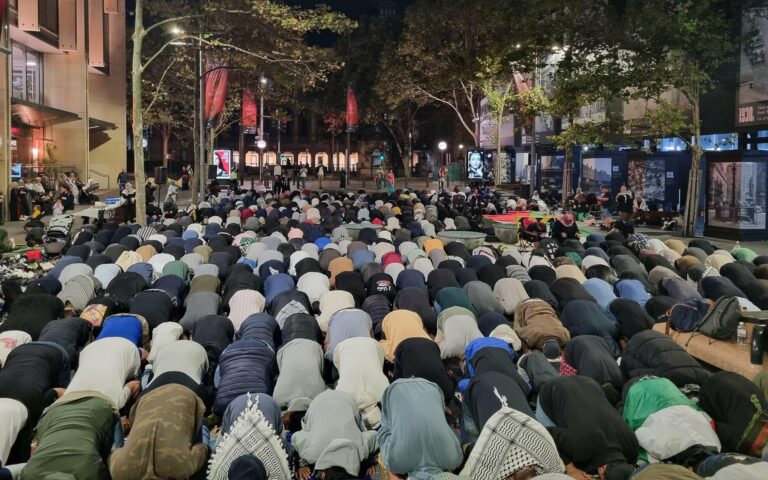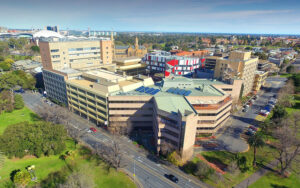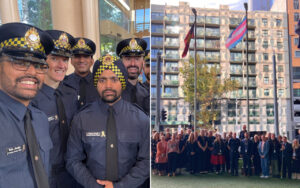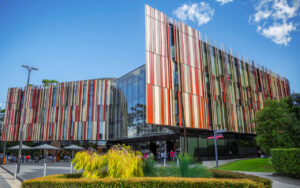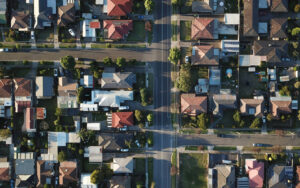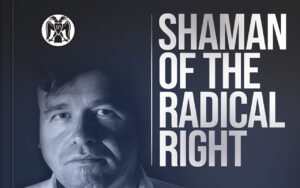Large majorities of Australian voters believe cities are already too crowded and immigration is making housing less affordable for young people, while almost half would be more likely to vote for a party which committed to reducing the annual migrant intake, according to a new poll.
The survey by Redbridge was conducted between April 12 and April 21 and asked Australian citizens aged 18 and over, and who were enrolled to vote, about their attitudes on immigration.
Overall, 45% said they would be likely or much more likely to vote for a party which promised to reduce immigration, 32% said it would make no difference, 14% were less likely or much less likely, and 9% were unsure.
Those least likely to vote for such a party were Greens and Labor on 35% and 18% respectively, 18-35s on 21%, the university educated on 21%, and the foreign-born on 20%.
Pauline Hanson’s One Nation last week promised a net-zero immigration policy, and the party has surged in the polls since new federal campaign manager Craig Kelly started focusing on the issue.
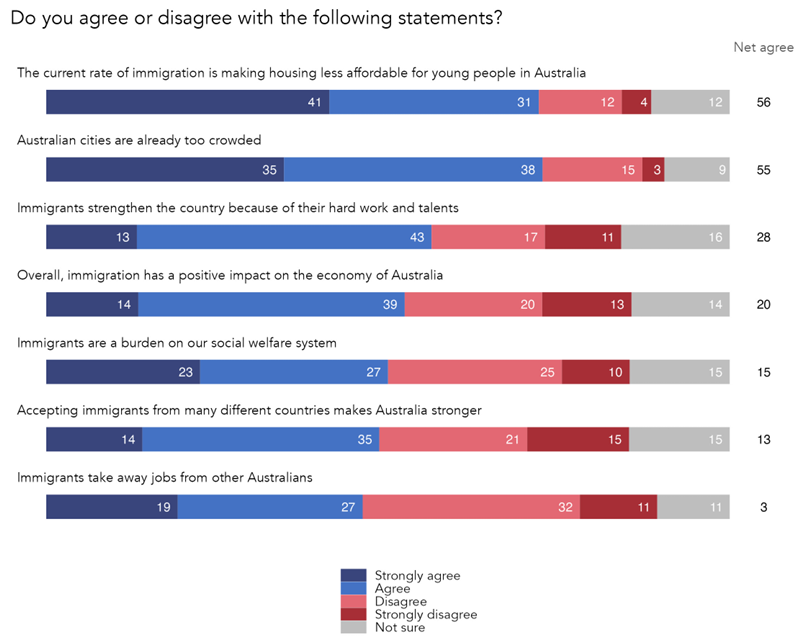
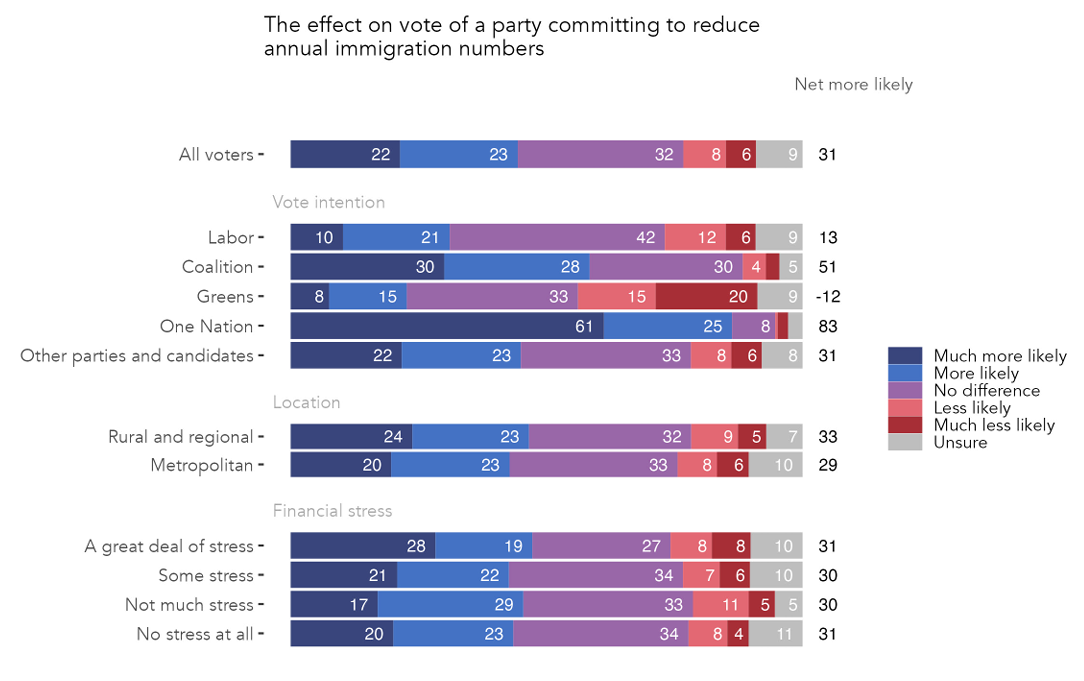
According to the Redbridge poll, 73% of voters think Australian cities are already too crowded, including 67% of likely Labor voters, 82% of Coalition supporters, 57% who back the Greens, and 89% of those who intend to vote One Nation.
72% said immigration was making housing less affordable for the young, with those aged 50 and older most likely to agree, along with protestants and catholics, middle income earners, non-high school graduates, and home owners without mortages.
50% said immigrants were a burden on the social welfare system. Those most likely to agree were Australians aged 50 and up, non-high school graduates and those with TAFE, trade or vocational qualifications, middle income earners, outright home owners, and protestants.
46% said immigrants take away jobs from other Australians. 49% of those born in Australia agreed, compared to 35% of voters born overseas, 37% of those who speak a language other than English at home, and 41% of those with a religion other than protestant or catholic.
Asked whether immigration had a overall positive impact of the economy of Australia, 53% of all voters agreed, including 62% of the foreign-born and 65% of those who speak languages other than English at home, compared to 50% of Australian-born and 51% of those who only speak English at home.
56% said immigrants strengthen the country because of their hard work and talents, with similar gaps between foreign and native born. 74% of those who speak other languages at home agreed.
49% agreed that accepted immigrants from many different countries made Australian stronger. Most likely to agree were those aged 18-34, university educated, born overseas, speaking non-English languages at home and with religions other than protestant or catholic.
The survey comes as new data showed that 30.7% of Australia’s population was foreign-born as of June 30 last year, the highest proportion since Federation.
The countries of birth with the largest increases since 2013 were India (467,000) , China (223,000), Nepal (144,000) and the Philippines (143,000).
